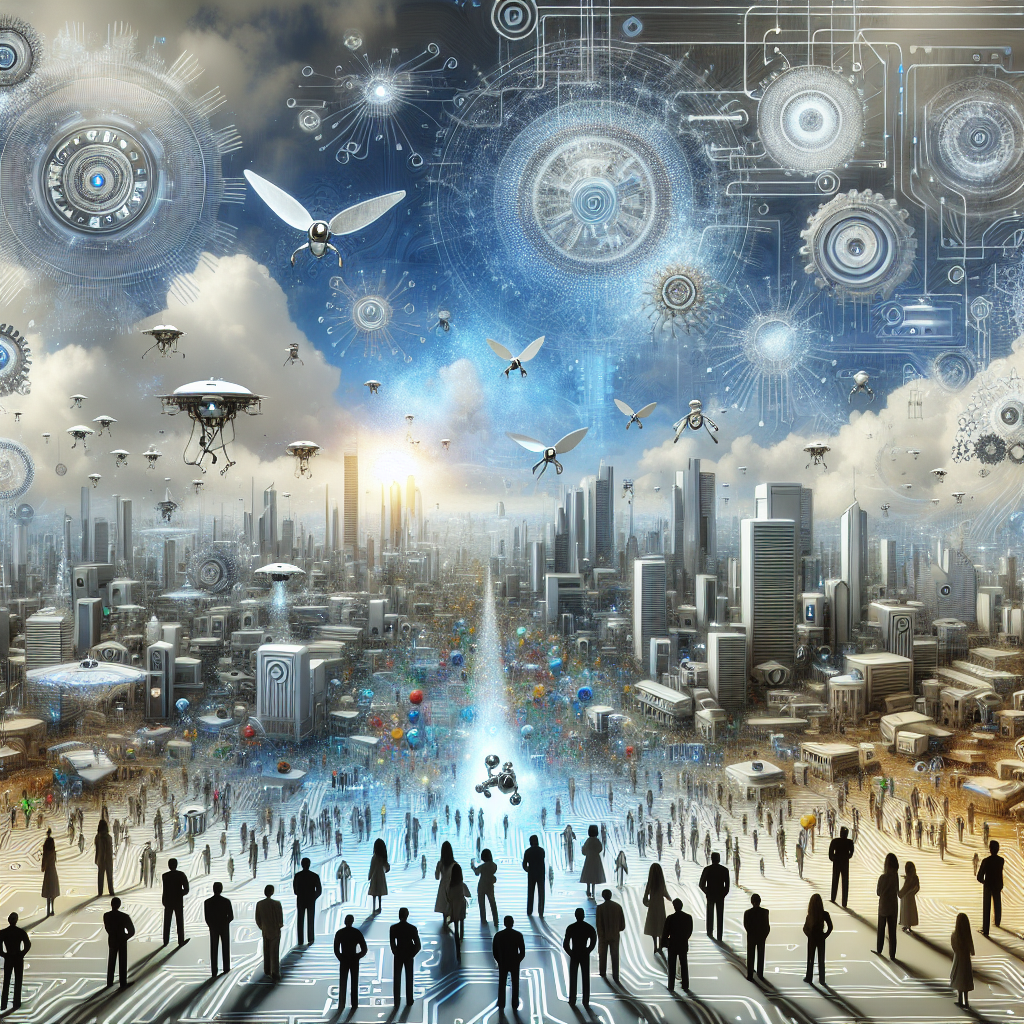Artificial General Intelligence (AGI) is the next frontier in the field of artificial intelligence. AGI refers to machines that have the ability to understand, learn, and apply knowledge in a way that is indistinguishable from human intelligence. While narrow AI systems have made great strides in performing specific tasks, AGI has the potential to revolutionize society and the economy in ways that are currently unimaginable.
The Impact on Society
The impact of AGI on society is likely to be profound. One of the most obvious effects of AGI will be on the workforce. As machines become more intelligent and capable of performing a wider range of tasks, many jobs that are currently done by humans will be automated. This could lead to mass unemployment and significant social disruption.
However, AGI also has the potential to create new opportunities for employment. As machines take over routine tasks, humans will be free to focus on more creative and strategic work. This could lead to a renaissance in innovation and entrepreneurship, as individuals are able to pursue their passions and interests without the constraints of mundane labor.
AGI also has the potential to revolutionize healthcare and education. Intelligent machines could help doctors diagnose and treat illnesses more effectively, leading to better outcomes for patients. In education, AGI could personalize learning experiences for students, helping them to reach their full potential.
Another area where AGI could have a significant impact is in the fight against climate change. Intelligent machines could help us to better understand the complex interactions that drive global warming, and develop solutions to mitigate its effects. AGI could also revolutionize transportation, making it safer and more efficient through the use of autonomous vehicles.
Overall, the impact of AGI on society is likely to be both positive and negative. While there are significant challenges to overcome, the potential benefits of AGI are vast and could lead to a more prosperous and equitable society.
The Impact on the Economy
The impact of AGI on the economy is likely to be equally profound. One of the most obvious effects of AGI will be on productivity. As machines become more intelligent and capable of performing a wider range of tasks, businesses will be able to produce more goods and services with fewer resources. This could lead to significant increases in efficiency and competitiveness.
AGI could also lead to the creation of entirely new industries. As intelligent machines are able to perform tasks that were previously thought to be the preserve of humans, new opportunities for innovation and growth will arise. This could lead to the development of new technologies, products, and services that could revolutionize the economy.
However, the impact of AGI on the economy is not without its challenges. One of the most pressing issues is the potential for widespread job displacement. As machines become more intelligent and capable of performing a wider range of tasks, many jobs that are currently done by humans will be automated. This could lead to mass unemployment and significant social disruption.
Another challenge is the potential for income inequality to worsen. As intelligent machines become more prevalent in the workforce, those with the skills to work with them will likely see their incomes rise, while those without these skills may be left behind. This could lead to a widening wealth gap between the haves and the have-nots.
Overall, the impact of AGI on the economy is likely to be both positive and negative. While there are significant challenges to overcome, the potential benefits of AGI are vast and could lead to a more prosperous and dynamic economy.
FAQs
Q: Will AGI lead to mass unemployment?
A: While AGI has the potential to automate many jobs currently done by humans, it also has the potential to create new opportunities for employment. As machines take over routine tasks, humans will be free to focus on more creative and strategic work.
Q: Will AGI lead to income inequality?
A: There is a risk that income inequality could worsen as a result of AGI, as those with the skills to work with intelligent machines may see their incomes rise, while those without these skills may be left behind. However, there are also opportunities for new industries and jobs to emerge.
Q: Will AGI be able to replicate human emotions and consciousness?
A: While AGI has the potential to replicate human intelligence, emotions, and consciousness are more complex phenomena that are still not fully understood. It is unlikely that AGI will be able to truly replicate human emotions and consciousness in the near future.
Q: What are the ethical implications of AGI?
A: The development of AGI raises a number of ethical concerns, including issues around privacy, security, and accountability. It is important for society to address these concerns and ensure that AGI is developed and used in a responsible and ethical manner.
In conclusion, the unleashing of the power of AGI has the potential to revolutionize society and the economy in ways that are currently unimaginable. While there are significant challenges to overcome, the potential benefits of AGI are vast and could lead to a more prosperous and equitable future. It is imperative that we approach the development and deployment of AGI with caution and foresight to ensure that its impact is positive and beneficial for all.

